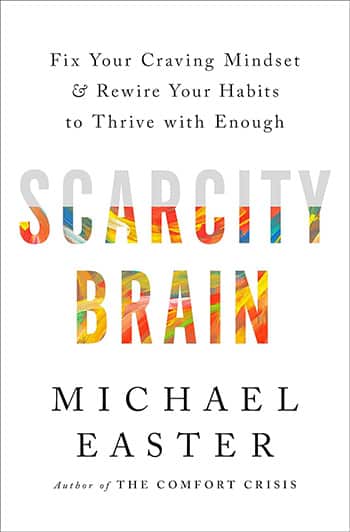Everyone has some bad habits, and they nearly always involve doing something too much. Eating too much, drinking too much, buying too much, looking at your phone too much. Why do we have such a propensity for overdoing it? My guest says it's all thanks to a "scarcity loop" that we're hardwired to follow. Once you understand how this loop works, you can start taking action to resist the compulsive cravings that sabotage your life. Michael Easter is the author of Scarcity Brain: Fix Your Craving Mindset and Rewire Your Habits to Thrive with Enough. Today on the show, Michael unpacks the three parts of the scarcity loop, and how they've been amplified in the modern day. We talk about the slot machine lab that corporations use to hack your brain, why your main problem may be that you're understimulated rather than overstimulated, why addiction may be better thought of as a symptom rather than a disease, how the quantification and gamification of life can negatively impact your experience of it, and how ultimately, the fix for resisting your bad habits is having something better to do than chase the cheap, unsatisfying hits of pleasure our culture so readily offers.
Everyone has some bad habits, and they nearly always involve doing something too much. Eating too much, drinking too much, buying too much, looking at your phone too much. Why do we have such a propensity for overdoing it?
My guest says it's all thanks to a "scarcity loop" that we're hardwired to follow. Once you understand how this loop works, you can start taking action to resist the compulsive cravings that sabotage your life.
Michael Easter is the author of Scarcity Brain: Fix Your Craving Mindset and Rewire Your Habits to Thrive with Enough. Today on the show, Michael unpacks the three parts of the scarcity loop, and how they've been amplified in the modern day. We talk about the slot machine lab that corporations use to hack your brain, why your main problem may be that you're understimulated rather than overstimulated, why addiction may be better thought of as a symptom rather than a disease, how the quantification and gamification of life can negatively impact your experience of it, and how ultimately, the fix for resisting your bad habits is having something better to do than chase the cheap, unsatisfying hits of pleasure our culture so readily offers.
